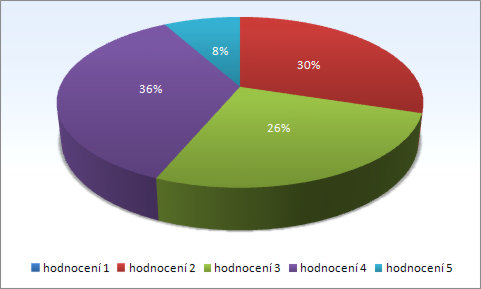Questionnaire Survey: Graduates
One of the priorities and goals of our project consisted of performing a questionnaire survey amongst employers and graduates from the Edvarda Beneš Secondary Business School and the Břeclav Business Academy.
The schools differed on this point and each opted to use its own individual questionnaire. Thus far, only the results from the Secondary Business School are available.
Within the questionnaire, which was anonymous, we focused on questions closely related to our project’s goals. Specifically, we tried to chart satisfaction with the language, computer, and civic preparedness of the graduates. These are the skills that are generally of key importance when applying for employment.
Unfortunately, the level of response from the graduates was not very high. Of the approximately 300 graduates that were addressed in writing and electronically, only 110 returned the questionnaire and only 87 of these replies could actually be processed. As a result, the results we verified cannot be considered as conclusive. Nevertheless, the replies submitted by the graduates prove that foreign language skills, the ability to navigate through legal documents, and awareness of the legal environment should all be at a higher level – i.e., a higher number of learning hours should be devoted to these areas.
Replies from 68 of the graduates were received in the classic manner and 19 were submitted electronically. Of the total number of respondents, 48 were male and 39 female. A total of 43 of the graduates who replied currently work in the field they studied; 32 work in a different field; and 12 are currently studying at universities. The highest percentage of replies we received was from graduates in the fields of forwarding and logistics (44).
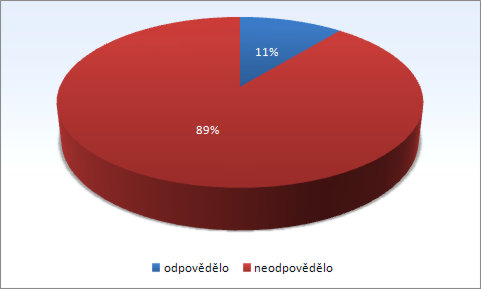
The research showed that more than one-half of the graduates in this area work in the field that they studied and completed (25)
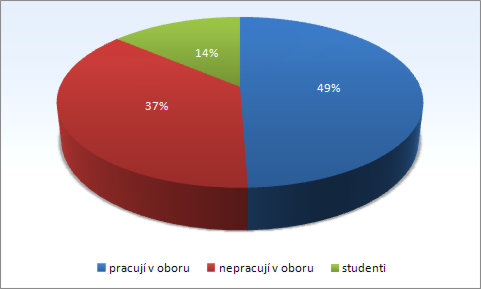
Graduates are employed at all position levels: laborers (6); mid-level technical staff (15); office workers (17); other (23); and management (5).
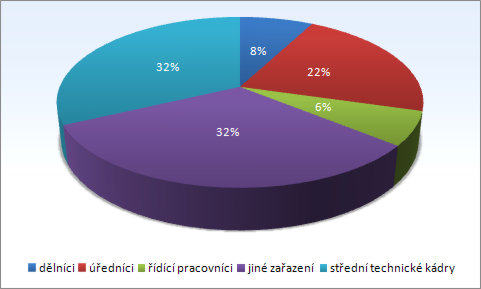
Within the questionnaire, we attempted to chart the level of foreign language skills at a fairly detailed level. In the majority of cases, the respondents rated their oral competency at Level 3. There were a total of 43 replies submitted.
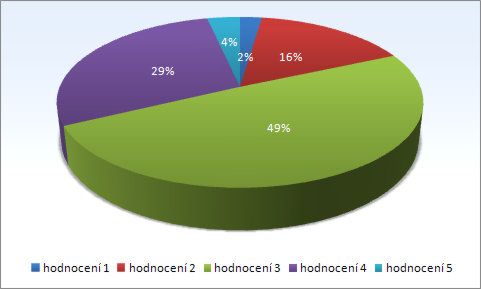
The main problems are in intermediated communications (e.g., telephone conversations): 14 of the students rated their skill in this area at Level 2; 25 at Level 4; and 3 graded their skills as unsatisfactory.
Receptive skills, i.e., reading and comprehension, are most likely underevaluated, but seem to present fairly significant difficulties: 37 respondents rated their skill in this area at Level 4; 26 at Level 3; 16 at Level 2; and only 4 at Level 1.
Working with text, i.e., the necessity of translating professional text, primarily from Czech to a foreign language, causes difficulties for more than one-half of the respondents (50) who rated their skill in this area at Level 4. In three cases, the respondents rated their skills at Level 5. Only a very few respondents responded that their skills are at Level 2.
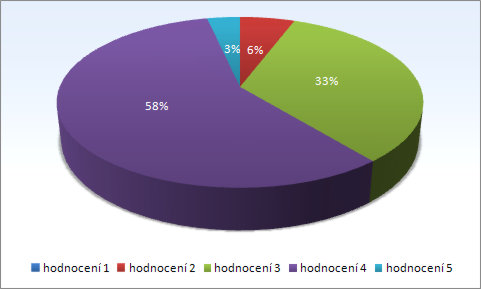
Written communication skills were rated much more positively: 36 graduates rated their skills at Level 3; 28 at Level 2; 17 at Level 4; Levels 1 and 5 were selected by 3 respondents each.
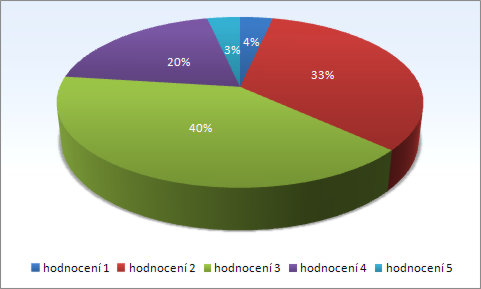
Working with the internet and web pages does not cause the graduates problems as a whole. Of the total number of respondents, 26 and 32 students rated their skills in this area at Levels 2 and 3 respectively. Only 19 students considered this area to be covered at too low a level or insufficiently.
Taking into consideration the fact that the students of the Secondary Business School are prepared to enter the employment market, where they should hold positions as mid-level technical staff, we also included questions pertaining to how prepared they were to enter the employment market. The research clearly shows that the large majority of graduates (a total of 62) are able to navigate their way through listings of available employment positions. Only 16 graduates indicated that they consider the school to stress this area at too low a level or insufficiently.
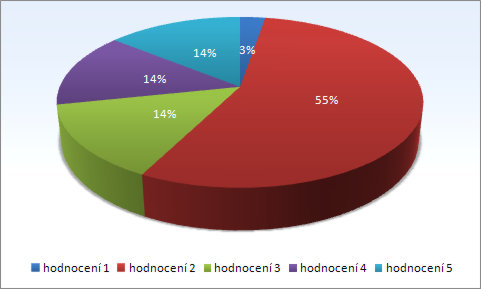
The replies that were received clearly indicate that there is somewhat of a lag in training with regard to interdisciplinary relationships, which should reflect everything that a graduate must know in relation to entering the employment market, e.g., basic legislation, regulations, decrees, rights and obligations that are related with entering the employment market, etc. As far as skill in this area is concerned, 40 graduates rated their skills in this area at Level 4 and 9 at Level 5; approximately one-third indicated they have average skills; and only 2 of the graduates rated their skills at Level 1.
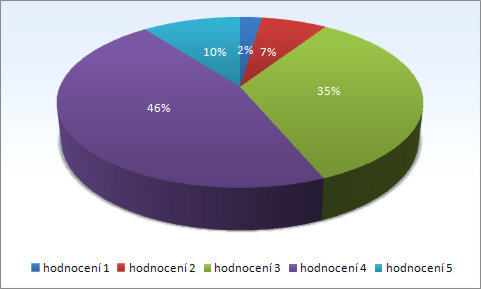
The results of job interview are closely tied to actually being hired for an employment position. When it comes to the preparation for this critical task, the survey showed that there is a low level of interdisciplinary cooperation in this area as well and the graduates rated their level of skill in a fairly neutral manner: 23 students rated it at Level 3; 31 at Level 4; and 7 at Level 5.
